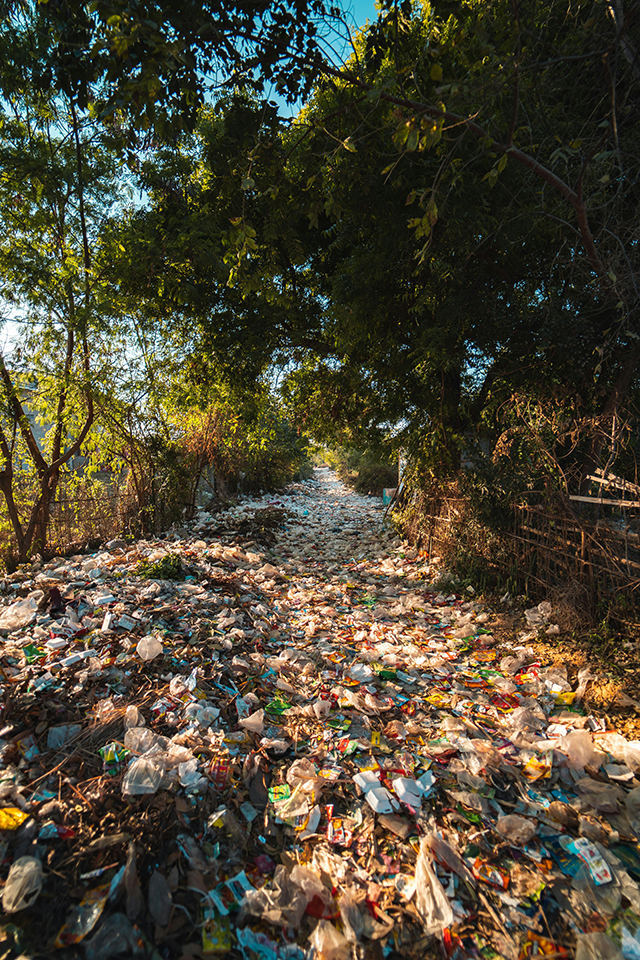Overview of Plastic Pollution and the Role of the Global Plastics Treaty
Plastic pollution is one of the biggest challenges our world faces today. It affects our oceans, rivers, land, and even the air we breathe. Every year, millions of tons of plastic waste end up in the environment, creating serious problems for both people and nature. Let’s dive into the key facts about plastic pollution and the steps being taken to address it through the Global Plastics Treaty.
What is Plastic Pollution?
Plastic pollution happens when plastic waste escapes from managed systems like landfills and enters the environment. When this waste is no longer controlled, it becomes a major threat to ecosystems. Plastic pollution can be broken down into two types:
- Macroplastics: These are larger pieces of plastic (greater than 5mm) like bottles, bags, and other visible plastic items.
- Microplastics: Tiny plastic particles (smaller than 5mm) that often come from the breakdown of larger plastics.
How Much Plastic Waste is There?
In 2020, around 52.1 million metric tons of macroplastic waste entered the unmanaged environment. This is about 21% of all the plastic waste produced by cities and towns, also known as municipal plastic waste. Municipal plastic waste comes from homes, businesses, schools, and public spaces, according to a global emissions inventory study published in Nature (s41586-024-07758-6).
What is the Unmanaged Environment?
The “unmanaged environment” is any place where plastic waste is no longer being controlled. This includes uncollected waste, litter, and open dumping sites. Once plastic enters this environment, it can move freely and cause harm to wildlife, ecosystems, and even human health.
Why Does Open Burning Happen?
In many parts of the world, especially in developing countries, formal waste collection services are either unavailable or not sufficient. As a result, people resort to open burning of plastic waste as a way to get rid of it. Open burning is harmful because it releases dangerous chemicals into the air and contributes significantly to pollution.
Global North vs. Global South: Who’s Responsible?
When we talk about plastic pollution, the world is often divided into the Global North and the Global South:
- The Global North includes wealthier, high-income countries like the United States, Western Europe, and Japan. These countries have better waste management systems and tend to have less uncollected waste.
- The Global South includes developing countries in regions like Africa, Latin America, and Southeast Asia. These countries struggle with waste collection, and uncollected plastic waste is a major source of pollution.
Plastic Pollution Hotspots
Certain regions are considered plastic pollution hotspots due to their high levels of unmanaged plastic waste:
- Southern Asia, Sub-Saharan Africa, and Southeast Asia have the highest levels of plastic pollution.
- India is the largest global emitter, contributing nearly one-fifth of all plastic waste emissions, followed by countries like Nigeria and Indonesia.
- In contrast, the Global North has lower levels of pollution because of better waste management practices, though littering is still a problem.
What is the Global Plastics Treaty?
The Global Plastics Treaty is a global agreement being negotiated under the United Nations Environment Programme (UNEP) to tackle plastic pollution. The treaty aims to reduce plastic waste, improve recycling, and promote better waste management worldwide. This treaty brings together representatives from governments, industries, scientists, and environmental groups to find solutions.
Negotiations began in 2023. The next Intergovernmental Negotiating Committee (INC) meeting for the Global Plastics Treaty is scheduled for November 25–December 1, 2024 in Busan, South Korea. This meeting is called INC-5 and is expected to finalize the text of the treaty.
Why Does This Matter?
Plastic pollution has lasting effects on the environment and human health. Once plastic waste enters the environment, it can break down into microplastics, which are even harder to clean up. Without immediate action, plastic waste will continue to harm ecosystems, wildlife, and people.
Call to Action
Plastic pollution is a global issue that needs urgent attention. While some countries have made progress in managing their plastic waste, others face major challenges. The Global Plastics Treaty offers hope for coordinated global action to reduce plastic pollution and protect our planet for future generations. Tackling uncollected waste and improving waste management systems, especially in developing countries, will be key steps toward solving this crisis.
By understanding the sources and impacts of plastic pollution, we can all play a part in making our world a cleaner, healthier place.

